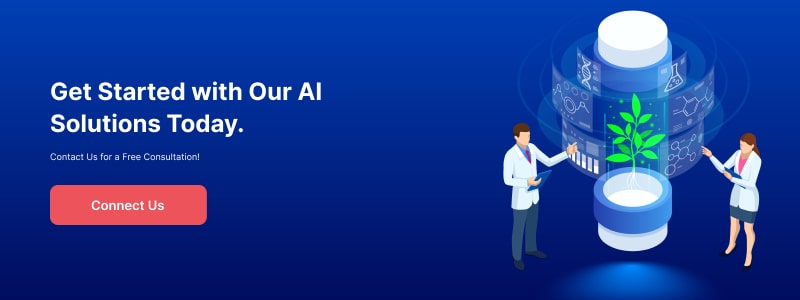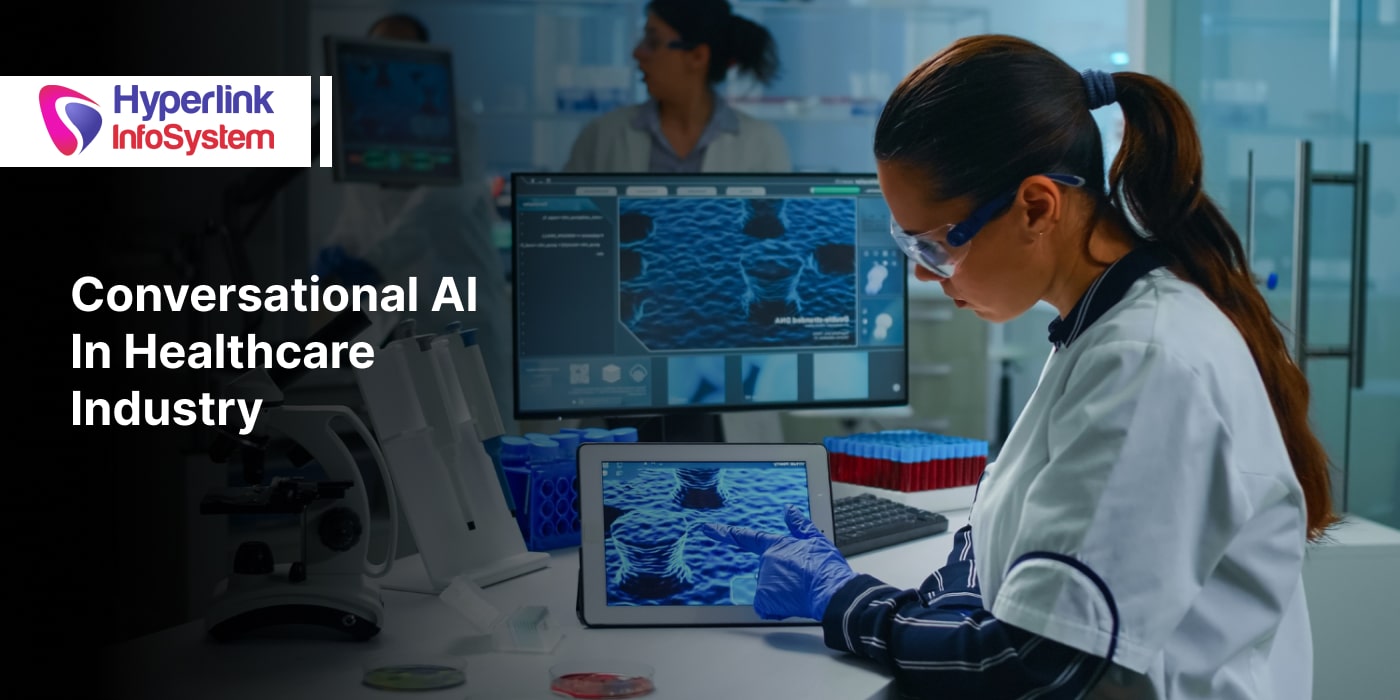AI in Pharmaceutical: Use Cases, Benefits, and More
Oct 2024
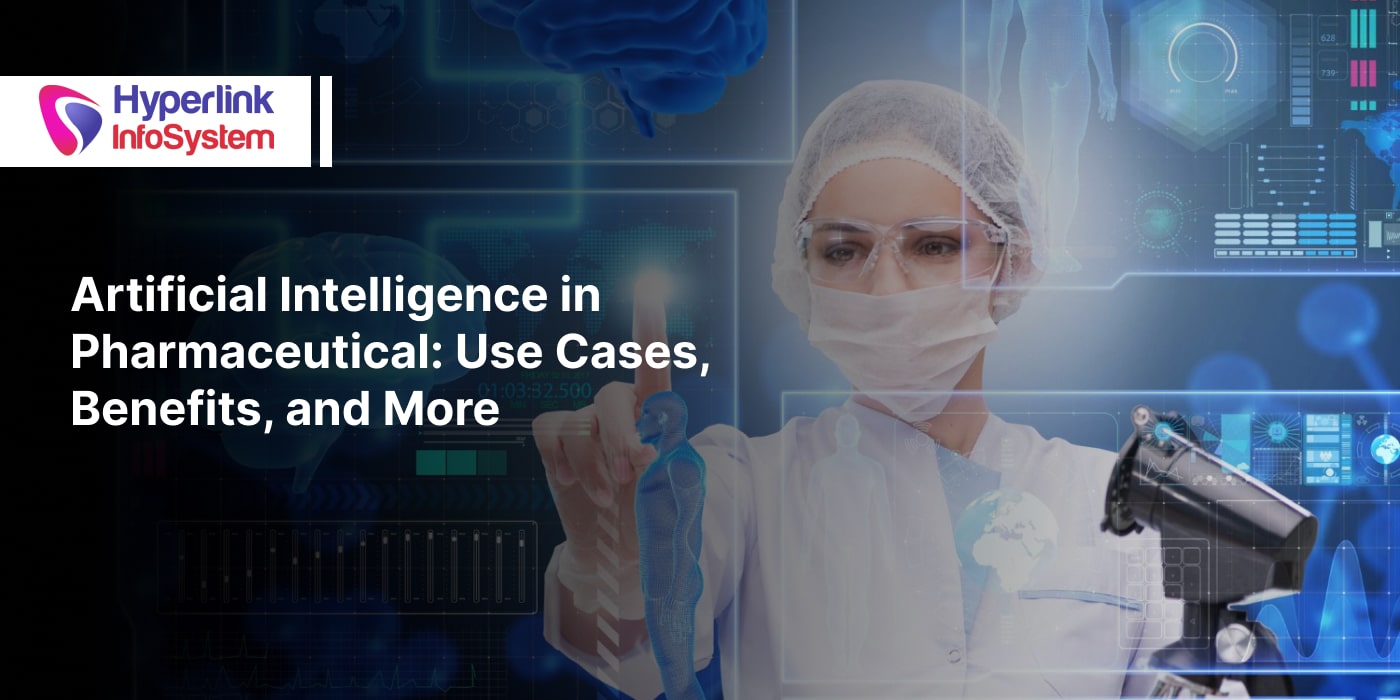
Artificial intelligence has brought advanced changes in various fields. The pharmaceutical industry is more expensive than you think and the failure ratio is high too. In addition, among numerous other things, artificial intelligence tools could help the pharmaceutical industry to develop and research drugs. AI changes how pharmaceutical companies operate. In this blog, we will examine how AI can affect the pharmaceutical sector.
AI in Pharmaceutical
Artificial intelligence in pharma is changing the way pharma breathes! From research and drug discovery to patient care, artificial intelligence makes each of these processes efficient and faster. Traditional drug discovery takes too long. AI helps in this whole process, as with its advanced algorithms and trained models, AI can perform research on new drug development and provide feasible solutions, it also optimizes clinical trials, and gives personalized treatments. AI can analyze and filter large complex data within fractions, for this same task, human researchers would have to take months and years, so yes this is how AI algorithms can reduce cost and time in the drug research process. For clinical trials, AI helps streamline the design, data analysis, and patient recruitment process. It is important to perform trials on the right set of patients. AI helps in identifying the right patients based on their genetic information. AI reduces the number of trials because of their well-researched predictions and it also reduces the time required for trials.
Natural language processing (NLP) tools are used in the pharmaceutical sector to research scientific literature and clinical data for new insights and opportunities. NLP helps healthcare professionals stay up-to-date on discoveries while making agile choices through the processing of gargantuan amounts of unorganized information such as research papers, clinical study outcomes, and patient details.
Additionally, artificial intelligence in pharma seeks to enhance individualized medical attention by adjusting the procedures undertaken by patients according to the genetic makeup they have and their respective health statuses. AI programming languages analyze DNA sequences as well as clinical records, machines can identify which medication suits each patient best while at the same time minimizing adverse reactions and preceding wasted potential on effectiveness.
In summary, at every stage of the process including personalized therapy, experimentation on humans, and creating medicines, AI is pushing the boundaries of imagination in the pharmaceutical industry. The use of advanced artificial intelligence techniques can help pharmaceutical companies to make quicker and more accurate decisions, decrease expenses, and eventually boost efficiency inpatient treatment.
Use Cases of AI in Pharmaceutical
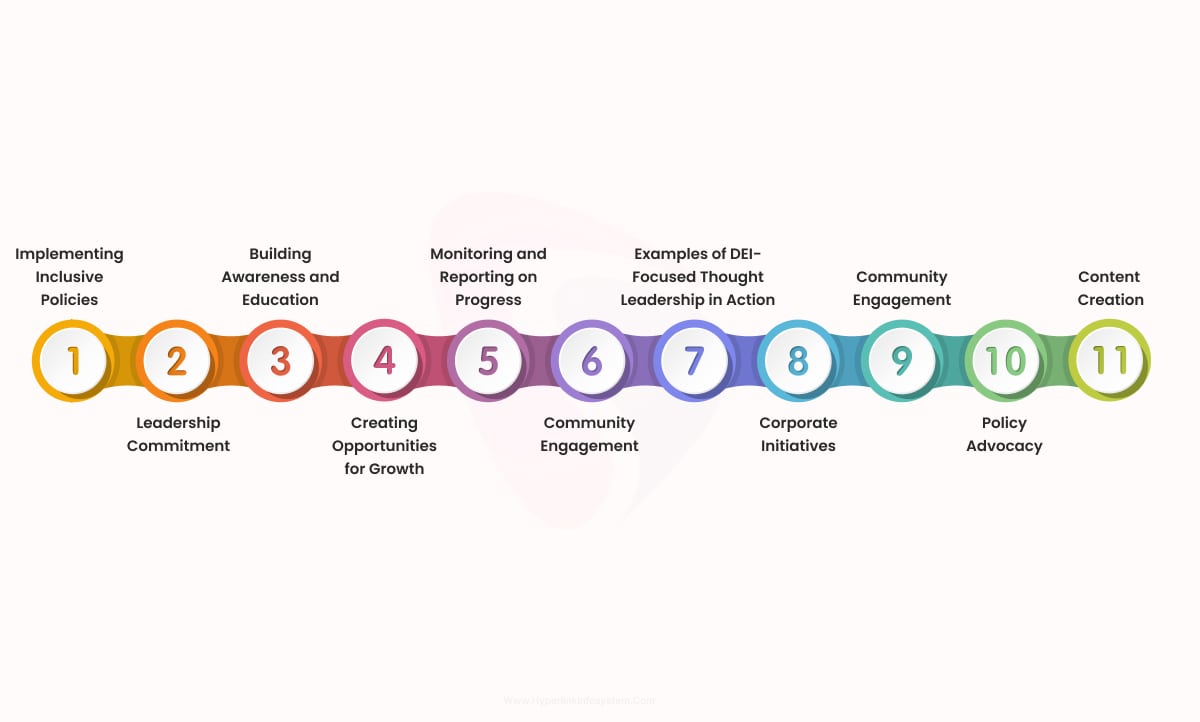
- Developing and Discovering Drug
The ability of AI to accelerate drug discovery is one of the most remarkable uses in the pharmaceutical business. Such artificial intelligence algorithms examine extensive biological data to predict chemical structures and interactions with likely therapeutic targets. This makes it quicker and less costly compared to traditional processes for identifying potential therapeutic candidates, which is important in reducing time and cost that would have otherwise been involved in conventional drug development procedures. Atomwise and Insilico Medicines are examples of pharma AI platforms that have come up with possible treatments for various diseases such as cancer and neurological disorders.
- Predictive Analytics in Drug Manufacturing
The optimization of medicinal production processes is greatly enhanced because AI can predict inefficiencies and problems with quality control. As such, AI systems are capable of monitoring production lines in real time as well as identifying trends suggesting equipment failure or changes in output quality. This leads to less waste and delays throughout the pharmaceutical manufacturing activities. Also, future-oriented models of predictive analysis, which are AI-driven, help in regulation observance for security and uniformity purposes for a product since they give information concerning production processes.
- More Accurate Clinical Trials
The development of new drugs is a time-consuming and costly process that involves conducting clinical trials on a large scale. However, with artificial intelligence optimizing trial design, data analytics, and patient recruitment, it has been able to change this system for good. For enhanced clinical trials, machine learning algorithms scan a large volume of patient data to find suitable candidates for clinical trials. This increases the likelihood of success of Pharma AI. To expect the outcomes or identify potential side effects, AI can also monitor data in real-time during clinical trials, which reduces the chances of study failures. For instance, IBM Watson Health is among the platforms that help pharmaceutical firms improve their clinical trials by analyzing existing trial data and suggesting ways to improve them.
- Personalized Medicine
By the fact that AI can be used to design personalized treatment plans for patients based on their genetic information or health status, it is clear this will mitigate adverse effects and improve treatment outcomes. AI algorithms made it possible to analyze genomic data to predict a specific patient’s potential reaction to certain therapies. As a result, negative impacts from the medication are minimized while improving healing. By examining the patient’s genes and projecting if a particular medication may be helpful for him or her, healthcare associations have utilized financial machine learning systems powered by artificial intelligence algorithms such as Tempus and GNS to customize cancer treatments.
- Natural Language Processing (NLP) for Data Mining
Pharma companies get a lot of unstructured data in clinical trial reports, patient information, and research teams. These data sources can be analyzed and insightful extractions made from them through AI-powered Natural Language Processing (NLP) methods. Natural Language Processing (NLP) tools allow researchers to find the latest scientific results by summarizing and integrating information, which helps in detecting new trends or potential treatment targets. Furthermore, medication safety campaigns can benefit from tracking negative event reports using AI programming languages.
- AI-Driven Drug Repurposing
Thanks to AI, it is possible to discover new uses for previously authorized medicines. To do so, algorithms analyze information on historical datasets along with the molecular structure of the drugs to propose other diseases where these could be effective. This might save a considerable amount of time in drug development because current medications have passed through numerous tests regarding safety and efficacy. For instance, AI systems played a vital role during the COVID-19 epidemic in repurposing medicines like Remdesivir or Dexamethasone against that virus.
- AI for Security Rules
Automation and streamlining of compliance procedures are now achieved with AI. AI-driven systems can monitor regulatory changes, evaluate compliance risks, and make sure all paperwork is in order. This lessens the possibility of non-compliance penalties in addition to lessening the workload for pharmaceutical businesses.
- AI in Manufacturing and Supply Chain
Forecasting interruptions in supply chains, optimizing inventories, and demand forecasting are some of the ways artificial intelligence is helping simplify the pharmaceutical supply chain. To facilitate efficient production, storage, and delivery of medicines, machine learning algorithms analyze data from everywhere in the supply chain to anticipate possible bottlenecks. This ensures timely delivery of life-saving medicines to patients as costs are reduced.
- AI in Pharmacovigilance
One more area whose progress has essentially depended on AI is pharmacovigilance, which checks products’ safety after they have entered the markets. With the use of data mining techniques using social networks textual streams clinical drug trials and individual reports for adverse medication detection, AI systems are faster to pick up any complaints than conventional systems can manage. This promotes patient safety by allowing the timely detection of potential issues to allow remedial actions to be taken by the regulatory bodies.
- AI for Early Disease Detection
Artificial intelligence in pharma is additionally aiding in the forecasting and detection of diseases in their initial phases. AI can detect patterns that indicate the early stages of diseases by examining the records of patients. Early detection helps patients take necessary measures for disease prevention and combat them when they are still manageable.
Benefits of Using AI in Pharmaceutical
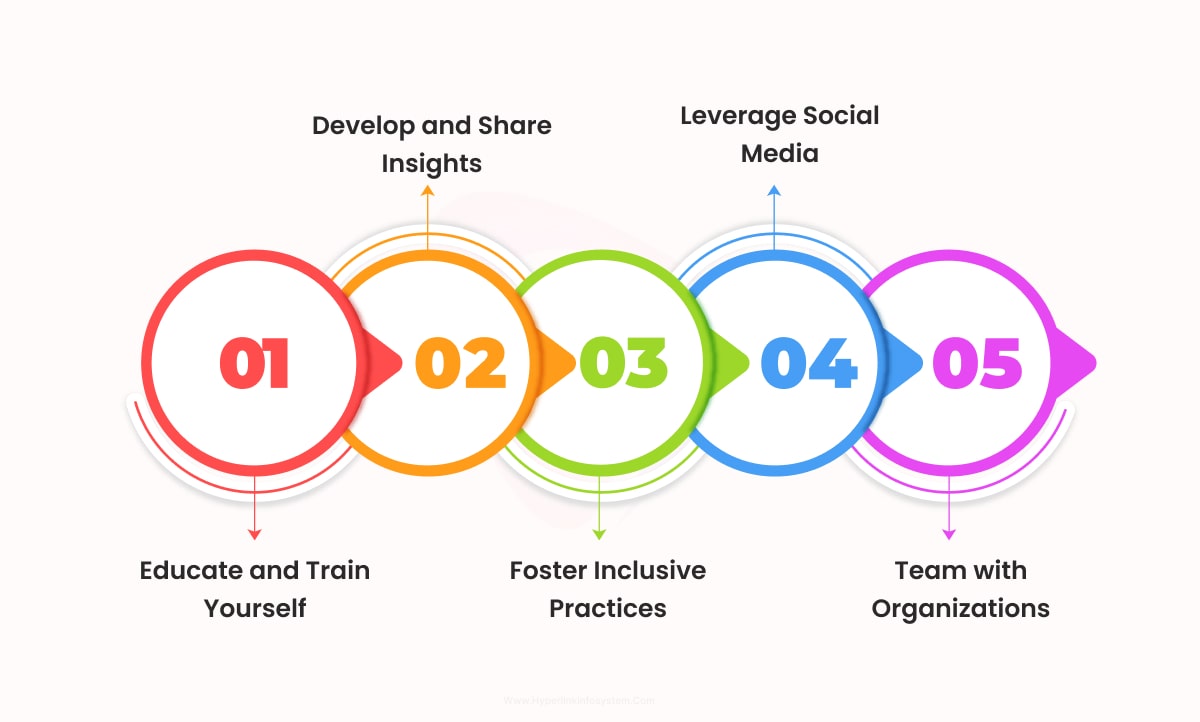
These benefits change the drug industry by introducing cost-effective, data-driven, and efficient approaches. The following points outline how artificial intelligence is transforming Pharmaceutical industry:
- Faster Drug Discovery and Development
AI lowers the cost of drug discovery while speeding up the process by identifying new medications by analyzing large data sets.
- Cost Reduction
AI in the healthcare industry automates drug development procedures, decreasing trial failure rates and predicting manufacturing inefficiencies, so pharmaceutical companies can substantially reduce costs.
- Improved Accuracy in Clinical Trials
Real-time monitoring of data, optimization of trial outcomes, and reduction in the time taken for the trials have made AI speedier and more precise with clinical trials.
- Customized Medicine
Based on the patient's health history, data, and genetics -- AI tailors customized medicine for individual patients.
- Streamlined Manufacturing
AI identifies production issues and improves the quality control processes to minimize product recalls.
- Faster Time to Market
The typical drug development lifecycle takes months and years in new drug research and development, but artificial intelligence automates and optimizes research and trials, accelerating its time to market.
- Better Decision-Making with Data Insights
Artificial intelligence processes all the available complex data and provides data insights for better decision-making.
- Efficient Supply Chain Management
AI predicts the demand for stocks and optimizes supply chains to ensure timely delivery and efficient chain management.
- Accelerated Drug Repurposing
Artificial intelligence identifies other new uses of existing drugs, resulting in faster deployment in emergencies and reducing development time for new treatments. An artificial intelligence development company can help you get your pharma business benefits by fastening up the drug repurposing.
Challenges of using AI in Pharmaceutical
- Maintaining Data Privacy and Security
When dealing with sensitive patient information, there are security and privacy problems. However, AI systems must respect regulations such as GDPR and HIPAA.
- Quality and Availability of Data
AI models demand huge amounts of data to process and analyze, they therefore need the best quality data to enable them to predict results.
- Regulatory Hurdles
Strict regulatory conditions are imposed on AI-driven processes. Compliance is made even more difficult by a lack of clear direction on AI’s function in drug development and approval.
- AI Integration with Existing Systems
AI systems must integrate seamlessly with legacy technologies in pharmaceutical companies. This can require significant investments in infrastructure and cause delays.
- Lack of Skilled professionals
In the pharmaceutical sector, the lack of qualified AI experts who can effectively conceive, implement, and supervise AI systems is a barrier to their generalized usage.
- Bias in AI Models
In relation to medication studies and caring for sick people, AI algorithms can absorb unfairness from training materials, leading to unbalanced outcomes or inaccurate forecasts.
- High Implementation Costs
The cost of developing, training, and maintaining AI systems is quite high. Smaller pharmaceutical companies may face difficulties in affording the initial investment required for the deployment of AI.
- Trust and Acceptance
There is skepticism among healthcare professionals regarding the reliability of AI systems, and gaining trust in AI's decision-making processes remains a challenge.
- Ethical Concerns
AI’s role in decision-making, particularly in areas like personalized medicine or drug testing, raises ethical questions, such as who is accountable when AI makes critical errors.
- Difficulty in Standardization
The need for standardized AI tools and practices across the pharmaceutical industry can hinder collaboration, making it difficult to compare results and share data effectively.
Conclusion
Artificial intelligence has made its presence felt in the drug and healthcare industries, which has changed many people’s opinions about these industries. Right now, some of these technologies have made drug discovery processes shorter and more efficient, offering personalized treatment approaches for chemotherapy patients while at the same time improving their overall well-being. Looking for other ways of being productive is also possible due to advancements in AI-driven systems, most notably in terms of productivity and invention. Nonetheless, several issues related to data protection, adherence to the law, and moral principles must be resolved if this kind of technology is expected to thrive.
AI development companies can be of significance in ensuring that healthcare and pharmaceutical companies dissolve these worries and vacate other responsibilities to them. With great programming languages and AI skills, these companies create reliable and scalable systems that boost innovation. An organization that develops AI is of paramount importance in the development of AI in the healthcare industry, making it intelligent and more efficient for tomorrow, like by improving clinical trials or making the drug manufacturing process more effective. Contact our experts now for further information.
Frequently Asked Questions
Some of the main benefits of using artificial intelligence in pharma are:
- Faster Drug Discovery
- Cost Reduction
- Customized Medicines
- Faster time to Market
- Streamlined Manufacturing
- Faster Drug Repurposing
AI can be used in early disease detection, pharmacovigilance, manufacturing, security, drug repurposing, and more.
Partner up with an artificial intelligence development company that will help you integrate AI into your pharmaceutical business.
Latest Blogs

Is BlockChain Technology Worth The H ...
Unfolds The Revolutionary & Versatility Of Blockchain Technology ...


IoT Technology - A Future In Making ...
Everything You Need To Know About IoT Technology ...

Feel Free to Contact Us!
We would be happy to hear from you, please fill in the form below or mail us your requirements on info@hyperlinkinfosystem.com
Hyperlink InfoSystem Bring Transformation For Global Businesses
Starting from listening to your business problems to delivering accurate solutions; we make sure to follow industry-specific standards and combine them with our technical knowledge, development expertise, and extensive research.
4500+
Apps Developed
1200+
Developers
2200+
Websites Designed
140+
Games Developed
120+
AI & IoT Solutions
2700+
Happy Clients
120+
Salesforce Solutions

40+
Data Science











